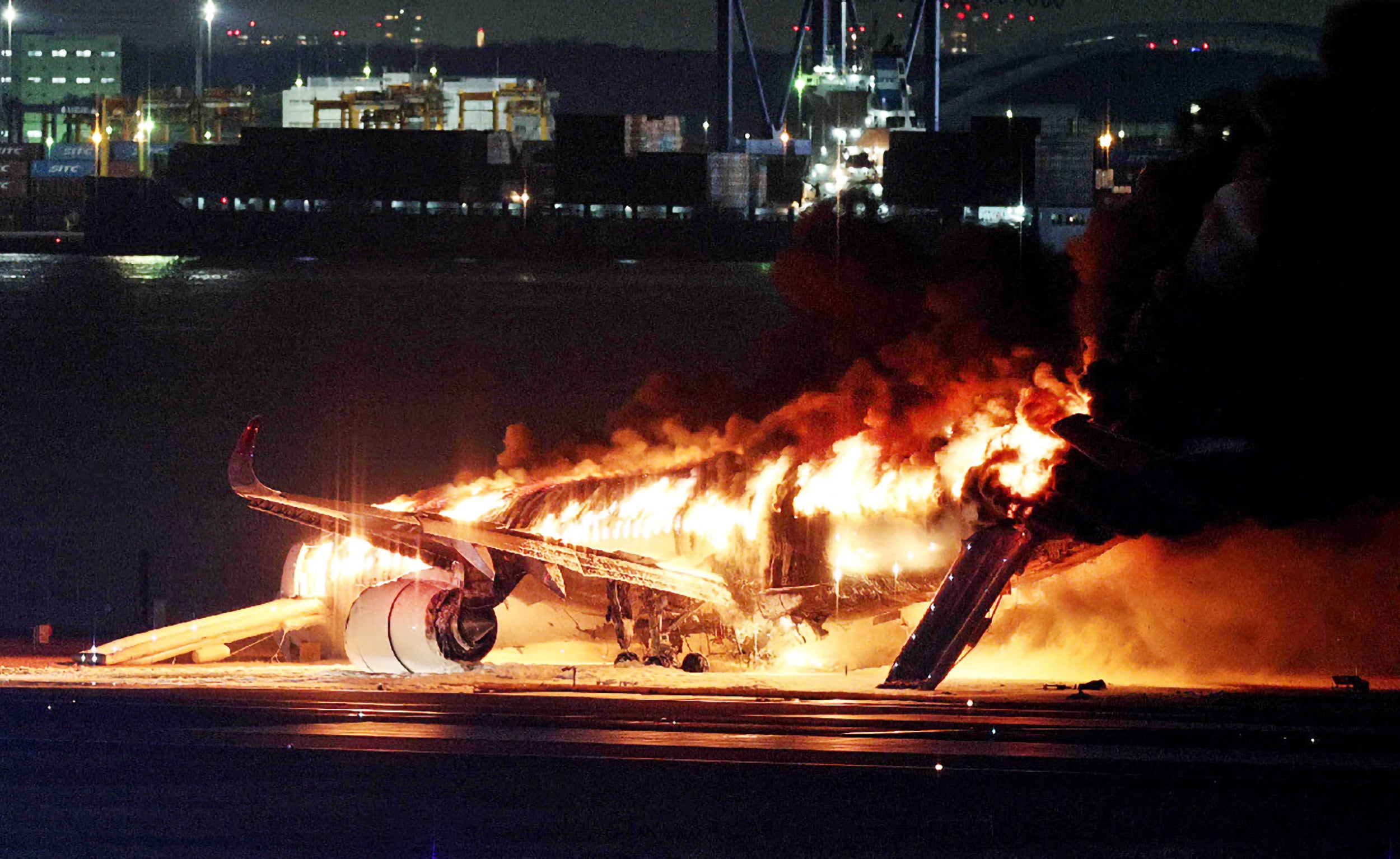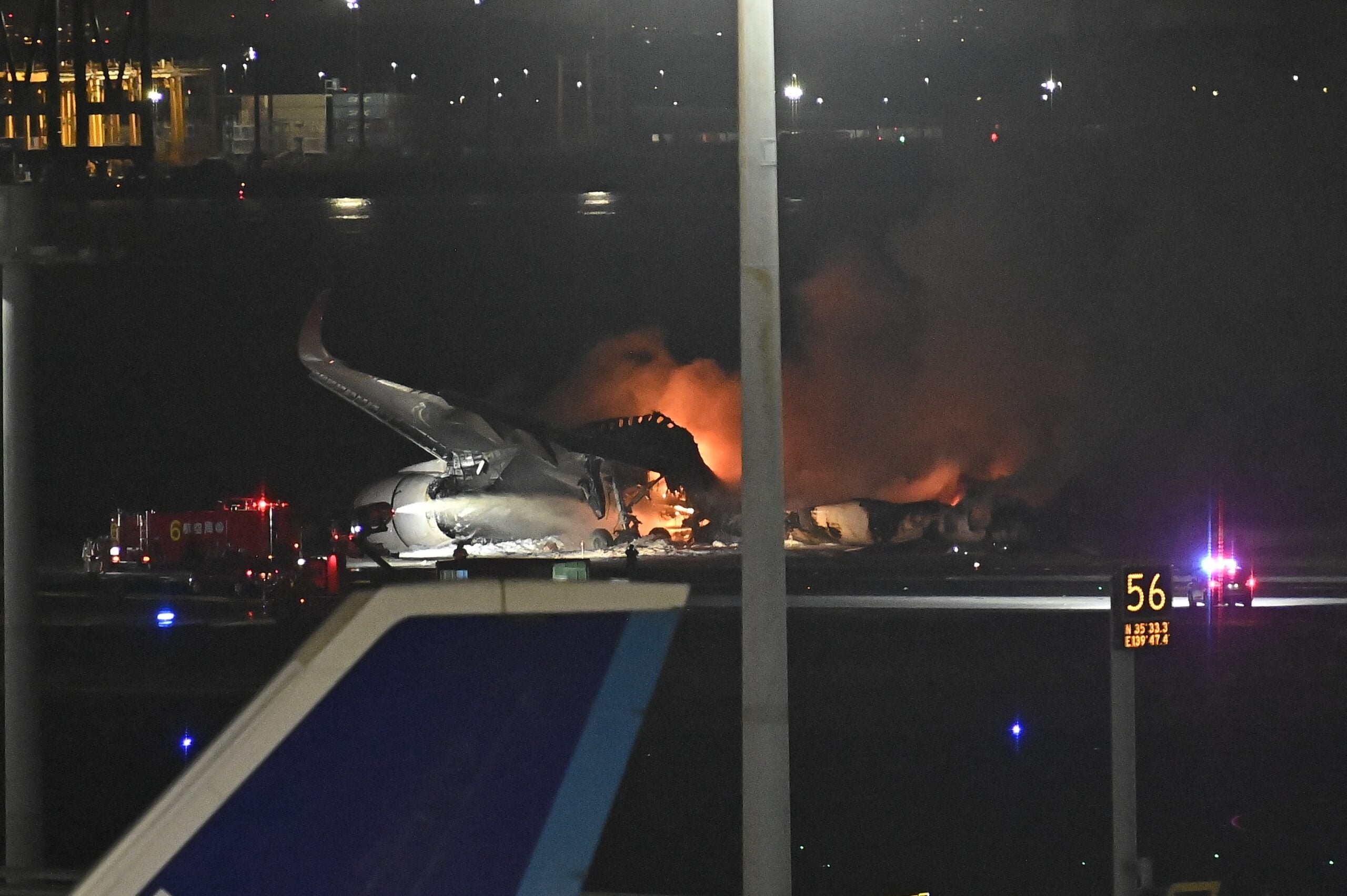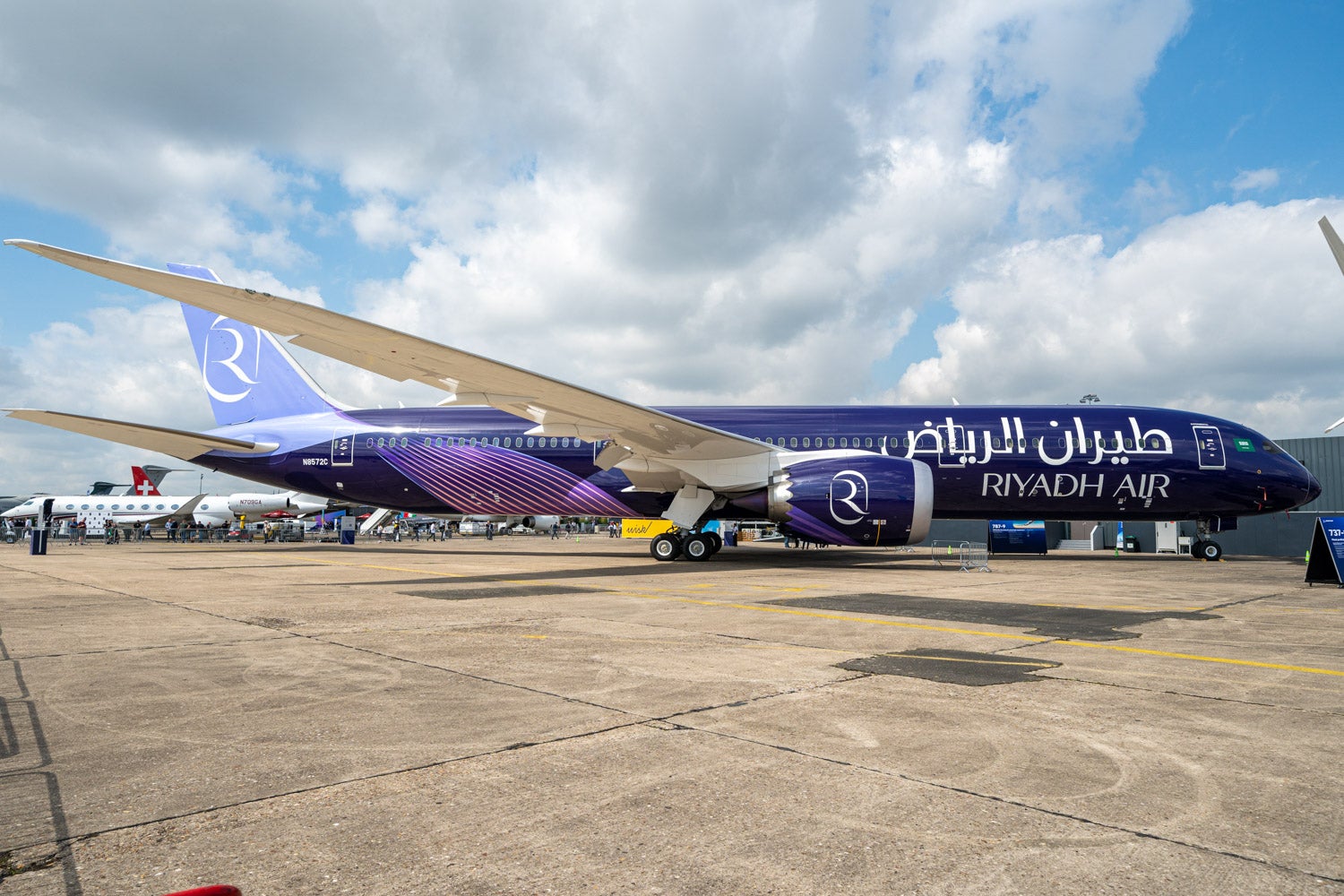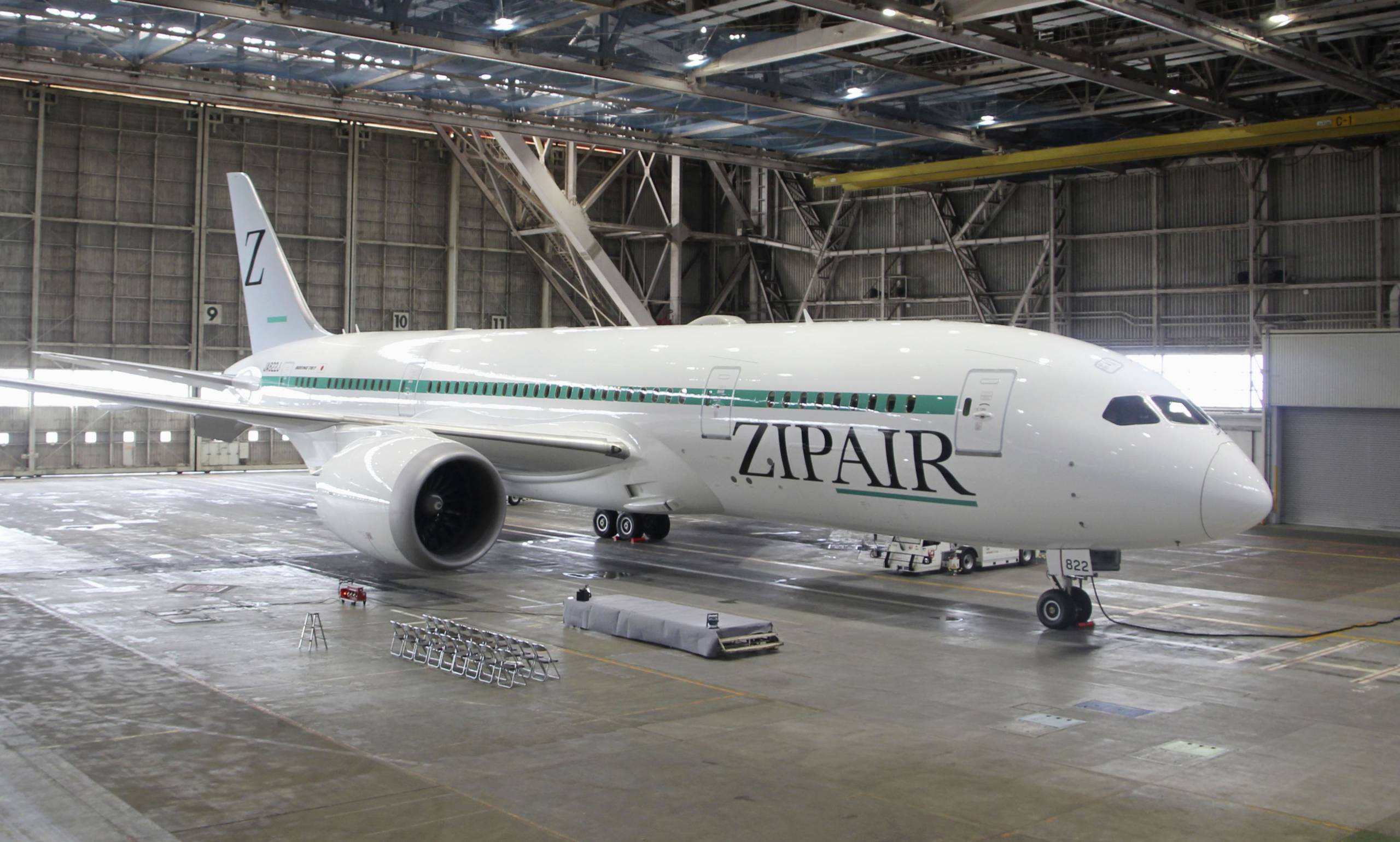Tokyo’s Haneda Airport resumes flights after firey Japan Airlines crash
Flights are again departing from Tokyo’s Haneda Airport (HND) following a runway disaster that left at least five Japanese service members dead and two aircraft destroyed.
All 379 passengers and crew, including eight infants, aboard Japan Airlines Flight 516 — an Airbus A350-900 arriving from Sapporo in the northern part of Japan — survived after evacuating the aircraft following a collision on the airfield with a Japanese coast guard aircraft.
The airline said that 17 of the passengers were transported for medical assessment or treatment, according to Reuters.
The A350 burst into flames as it continued rolling down the runway at Haneda following the crash, which occurred at 5:47 p.m. Video from local media showed a fireball following the initial crash, as well as the plane fully engulfed by fire several minutes later following the evacuation.
The coast guard aircraft — a De Havilland Canada Dash 8, according to Airbus — was en route to Niigata, a city north of Tokyo on the coast of the Sea of Japan, as part of relief efforts following Monday’s 7.5 magnitude earthquake. Five of the six crew members on board were killed, according to Japanese authorities; the condition of the sixth was not immediately clear.
Numerous flights to and from Haneda were delayed or canceled Tuesday evening, while some inbound flights were diverted to other airports. Flights had resumed by later Tuesday evening (Tuesday morning on the U.S. East Coast), while the runway where the crash occurred remained closed. Haneda has four runways.
The cause of the crash was not immediately apparent, although a Japanese official said that the A350 landed on the runway where the Dash 8 was preparing to take off, according to the Associated Press, which reported that officials were analyzing communications between air traffic control officials and the two aircraft.
Japan Airlines drew praise for safely evacuating all of the passengers and crew amid the severity of the incident. Video shows passengers leaving the plane on escape slides without having stopped to retrieve luggage — a frequent bane of airlines during emergencies.
“The cabin crew must have done an excellent job. There don’t seem to be any carry-ons,” Paul Hayes, the director of air safety at Ascend by Cirium, an aviation consultancy based in the U.K., told Reuters. “It was a miracle that all the passengers got off.”
Haneda is one of two airports serving Tokyo, and it’s closer to the city than Narita International Airport (NRT).
It appeared to be the first major accident and loss of an Airbus A350 since the aircraft first entered service in 2015. More than 570 of the aircraft type had been delivered to customers and placed in operation by the end of November, according to Airbus. The aircraft involved in the collision, which bore the tail number JA13XJ, was delivered to Japan Airlines in November 2021, Airbus said.
Japan Airlines operates 16 A350-900s, with two more of the aircraft on order, according to Airbus data. The airline also recently took delivery of its first of 13 of the longer A350-1000 variant, which will feature the airline’s new onboard product and function as the airline’s flagship.
Airbus said it was dispatching a team to assist investigators in Japan.








